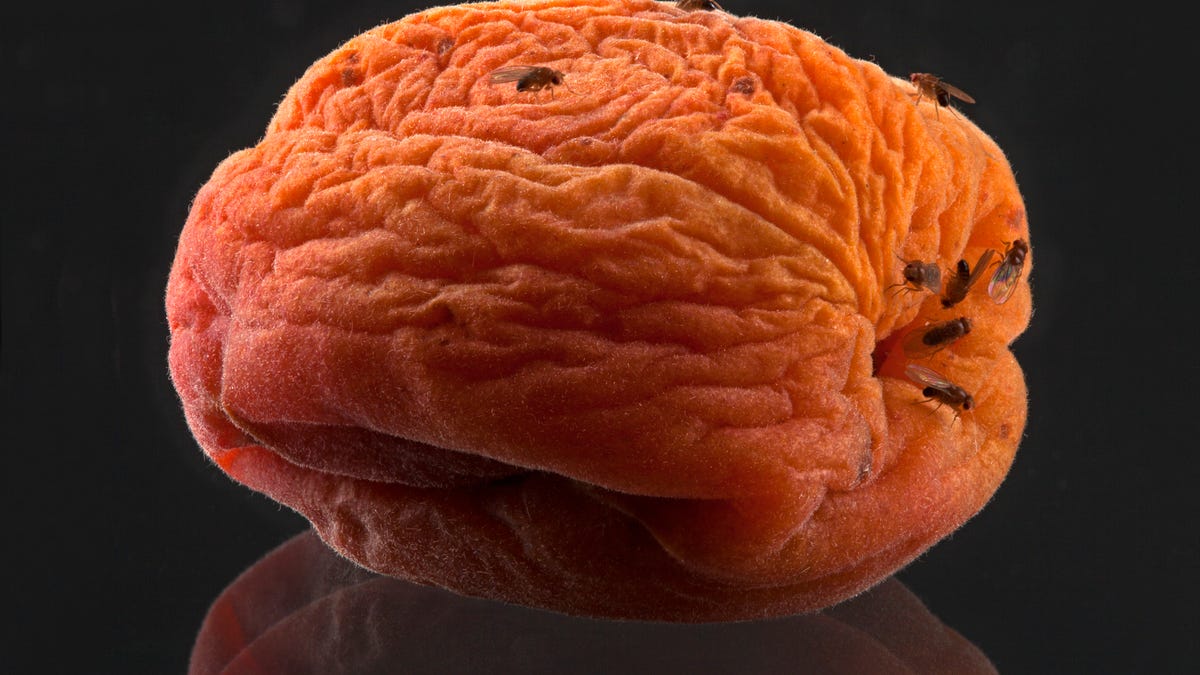Get Rid of Fruit Flies in Your Kitchen With This Expert-Approved Advice
Stay fruit fly-free this summer with advice from an entomologist on how to eliminate the pesky bugs.

Need some relief from fruit flies? Here's how to eliminate them.
Fruit flies can pop up during any time of the year. But once it gets warmer, it seems like the fruit flies flock to your kitchen in full force.
There's a reason for that. Jody Green, an entomologist at the University of Nebraska-Lincoln, told CNET that it might seem as though one day your kitchen is insect-free and then the next hundreds of fruit flies appear out of nowhere, but the reality is a bit different.
In a fruit fly infestation, fruit flies will normally hitch onto overripe fruit that you bring home from the grocery store, or bruised fruit, which tends to ripen and rot quicker. They can also find a way into your home by latching onto your clothing or flying in when the windows are open.
Once fruit flies are in your house, they'll lay eggs in rotten fruit or any fermented substances and continue their life cycle, Green explained. That's how infestations happen. And once they're in, they're laying eggs everywhere they can.
Thankfully, there are ways to kick fruit flies out of your kitchen and expel them from your home. Some steps can help prevent an infestation, while others can help eliminate one. So take a look and keep your place fruit-fly free.
For more home tips, here are the best air purifiers for clean air and the best cordless vacuums.
What do fruit flies look like?
Fruit flies are about an eighth of an inch long, have red eyes (though some species have darker eyes) and are light brown with dark rings around their abdomen. They also have two wings (many insects have four).
What sorts of foods and environments attract fruit flies?
The common name that entomologists give fruit flies is "vinegar flies." That's because they're naturally attracted to fermented liquid, and when fruit rots, it also ferments.
But fruit flies don't thrive only on rotten fruit or vinegar. They also love sugary substances like soda, wine and beer, and you can find them in the bottom of your trash bin or any wet place with a substantial food source.
"Substantial food source" may mean something different to you than to the small but mighty fruit fly, Green said. "It may not be the food you are wanting to eat, but fruit flies are so tiny it only takes a tiny microhabitat" -- like the residual soda in a can in your recycling bin or leftover bits and crumbs in a takeout container in your garbage, Green explained. Those are prime spots for fruit flies to breed. Once the weather warms, it takes less time for fruit fly eggs to turn into babies.
How can I prevent a fruit fly infestation?
To prevent fruit flies from taking over your kitchen, it all comes down to cleaning. Keeping your place as dry and free of food as possible prevents pests from continuing their life cycle.
Throw away garbage and take out recycling frequently. Clean out the bottom of bins when liquid accumulates, wipe down counters after you're finished cooking, and keep your sink and garbage disposal free of old food, empty of dishes, and as dry as possible.
Storing fruits and vegetables in the fridge instead of on the counter will also make it harder for the fruit flies to find them. And since they're attracted to rotting fruit, you should carefully pick your produce at the store to make sure you aren't bringing any rotten or bruised pieces home, Green said. She also added that you should recycle or compost cardboard boxes that hold produce as soon as possible, because fruit flies could be breeding in them. Any place that catches water or is moist, like a wet kitchen rag or the rug next to the sink, could become a breeding ground for fruit flies.
These fruit fly hacks don't work
If you have a fruit fly problem, you've probably searched for some outlandish "miracle" tips to eradicate them. When I asked Green about the tips and tricks I've seen online, she debunked plenty of them. Pouring hot water down your drain? That doesn't work. Neither does pouring Borax or diatomaceous earth powder down the drain, keeping your environment extra cool, or washing your fruit right as you get home, since running fruit under water can cause it to ripen quicker.
These fruit fly hacks actually do work
Keeping your kitchen clean and dry, throwing out garbage frequently, picking produce carefully and storing it in the fridge are your best bets for preventing fruit flies from reproducing.
When you're dealing with an infestation, put vinegar and a couple drops of dish soap in a bowl, cover the bowl with cling wrap and poke holes into it. (Green likes to use dollar store salt and pepper shakers, because the holes are the perfect size for flies, and you can get some wonderfully decorative shakers -- much more glamorous than a cling-wrapped glass or bowl.) That'll kill the adults. Sticky paper works at trapping them, too.
For more on food and the kitchen, check out the best meal kit delivery services of 2023.

